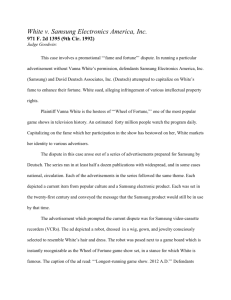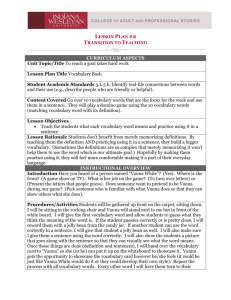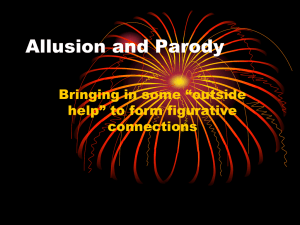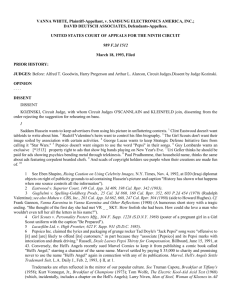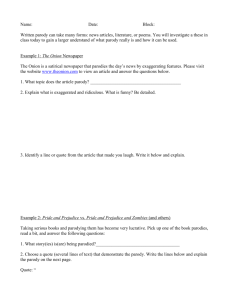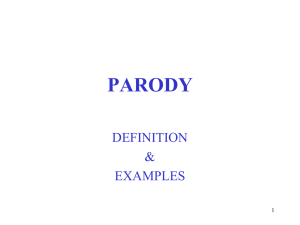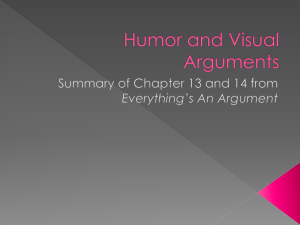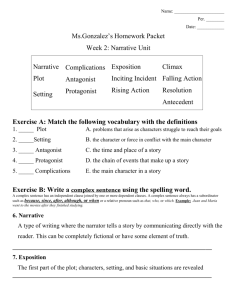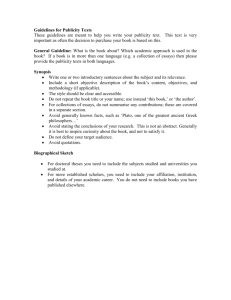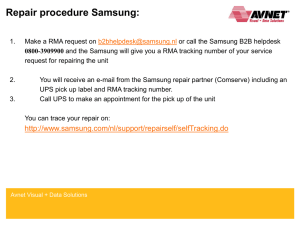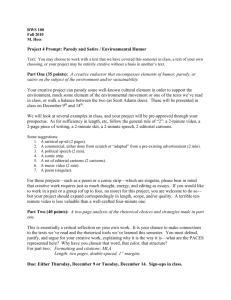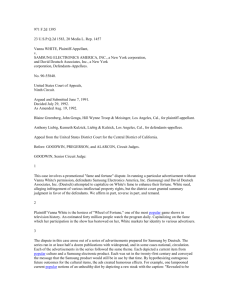ward, what to do about the beav?
advertisement
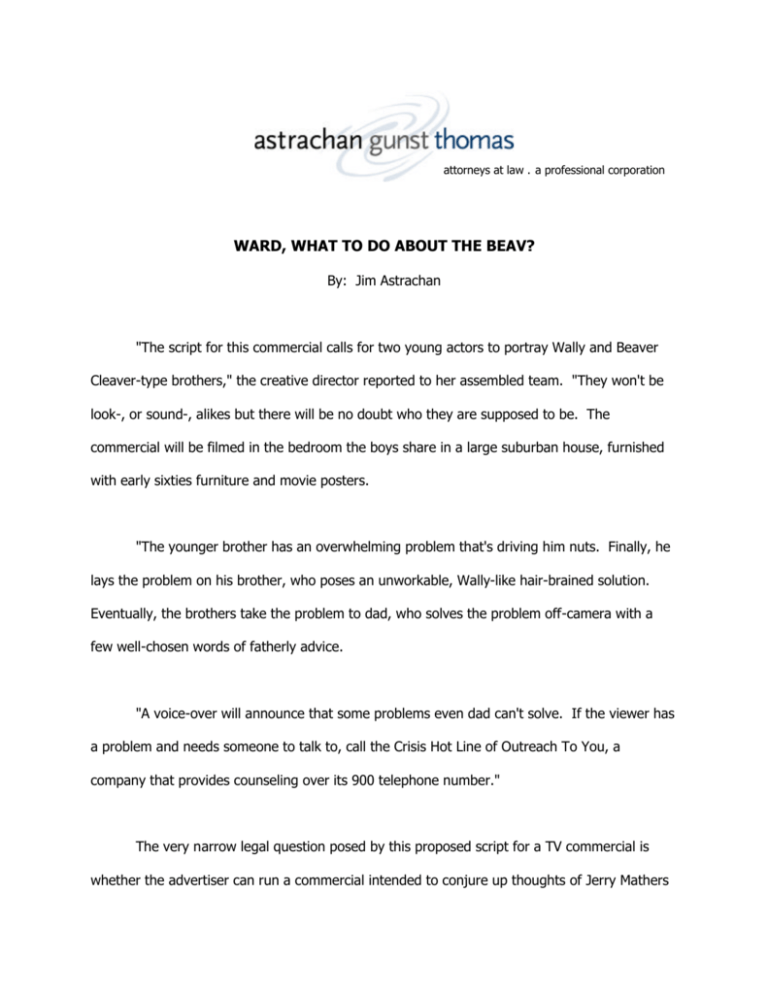
attorneys at law . a professional corporation WARD, WHAT TO DO ABOUT THE BEAV? By: Jim Astrachan "The script for this commercial calls for two young actors to portray Wally and Beaver Cleaver-type brothers," the creative director reported to her assembled team. "They won't be look-, or sound-, alikes but there will be no doubt who they are supposed to be. The commercial will be filmed in the bedroom the boys share in a large suburban house, furnished with early sixties furniture and movie posters. "The younger brother has an overwhelming problem that's driving him nuts. Finally, he lays the problem on his brother, who poses an unworkable, Wally-like hair-brained solution. Eventually, the brothers take the problem to dad, who solves the problem off-camera with a few well-chosen words of fatherly advice. "A voice-over will announce that some problems even dad can't solve. If the viewer has a problem and needs someone to talk to, call the Crisis Hot Line of Outreach To You, a company that provides counseling over its 900 telephone number." The very narrow legal question posed by this proposed script for a TV commercial is whether the advertiser can run a commercial intended to conjure up thoughts of Jerry Mathers and Tony Dow in the minds of viewers, without violating their rights of publicity. The question is narrow, but the answer, based on First Amendment-protected parody, is even thinner. "Jim," the creative director asked, "we need to know if this ad is legal?" "Many states have passed laws that protect the right of publicity, being the right of a person to control the commercial use of his or her identity," I answered. "In states that don't have statutes on their books, citizens rely on the common law to protect this right. Federal courts in California and New York, in cases dealing with Vanna White and Woody Allen, have also ruled that celebrities have enforceable trademark rights in their identities under the Lanham Act. "To violate a right of publicity statute, the offender almost always has to use an actual photo, picture or name of the celebrity in a commercial. Additionally, sound- and look-alikes have violated these statutes. But courts enforcing common law and trademark rights in New York and California have not taken so restricted a view, holding that any use of identity sufficient to remind viewers of a celebrity is likely to violate the right of publicity." It is conceivable that Jerry and Tony could ask California or New York courts to rule that the use of the Cleaver-esque boys in the ad violates their rights of publicity. If this happens, a clever defense is needed. Enter Vanna White v. Samsung Electronics and Samsung's failed attempt to impose a parody defense to its violation of Vanna's right of publicity. Samsung thought it could run an ad with a robot, wearing Vanna clothes, wig and jewelry, on a Wheel of Fortune game show set. In a much-criticized decision, the court held that because the commercial was sufficient to remind viewers of Vanna, her right of publicity under the common 2 #6801 law and her trademark rights in her persona were violated. The dissenting opinion is quoted more often than the majority, however. The dissent felt that the majority had created a classic case of overprotection, erecting property rights of remarkable and dangerous breadth, for under the majority's decision, wrote Judge Kozinski, "it is now a tort for advertisers to remind the public of a celebrity. … to simply evoke the celebrity's image in the public's mind." But where the Vanna White case really becomes interesting, and where it impacts this proposed script, was the court's treatment of Samsung's attempt to impose a parody defense to its infringement of Vanna's right of publicity. My Webster's Dictionary defines parody as A literary … composition imitating the characteristic style of some other work …, but treating a serious subject in a nonsensical manner in an attempt at humor. Many cases have held that commercial advertising can properly parody famous trademarks and otherwise protectible copyrights. For example, Leslie Nielsen hopped through the set of a Coors commercial dressed as the Energizer Bunny. He also successfully knockedoff Annie Liebowitz's Vanity Fair cover photo of a pregnant, and naked, Demi Moore. Baseball cards were held to be suitable vehicles to parody baseball players. I thought about the dilemma for a few moments and finally said, "Your use should be protectible parody. For a parody to be successful, it must convey two simultaneous and contradictory messages. First, it is the original show, and second it is not the original show but 3 #6801 merely a parody. This proposed script does exactly that, and it conjures up no more of the original than is needed to make its point. "No one yet has gotten away with a parody in an ad that infringes a celebrity's right of publicity, although Samsung came closest but failed for understandable reasons. What caused Samsung to fail was its lack of any meaningful connection between the parody of Vanna White and the products it attempted to sell in the ad. All Samsung did was use Vanna's identity to draw attention to its ads to enhance sales." The Vanna White court held, The ad's spoof of Vanna White and Wheel of Fortune is subservient and only tangentially relates to the ad's primary message: "buy Samsung VCRs." And that's where the Leave It To Beaver script may leave Vanna White and Samsung in the dust. This script promotes a counseling service to people who grew up watching a great deal of situation-comedy TV that conveyed the message that life's complex problems begin and end within a thirty minute program. This commercial was created specifically to educate viewers that what has been ingrained from years of watching TV is not true. What better way to convey this concept in seconds than by parodying Leave It To Beaver? Between creation of a legitimate parody, employing characters reminiscent of the show's two principal characters, and the minority opinion's belief in the White case that the majority 4 #6801 has created an "Orwellian notion that withdraws far more from the public domain than prudence and common sense allows," this script might just fly. _______________________________ James B. Astrachan is a principal at the Baltimore firm of Astrachan Gunst Thomas, P.C. Mr. Astrachan is a former chair of the Maryland Bar Association's Intellectual Property Law Committee. 5 #6801
